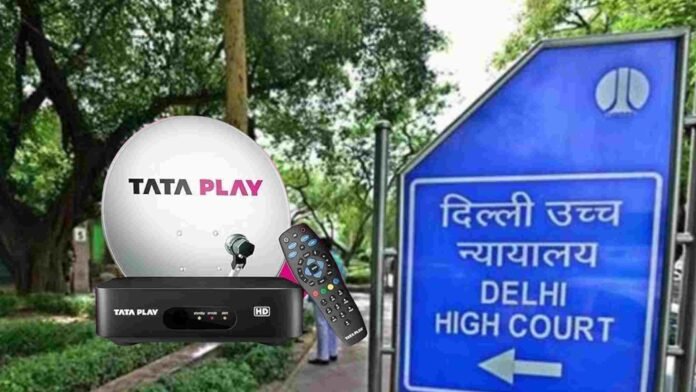The Delhi High Court set aside a Rs. 450-crore profiteering order passed by the National Anti-Profiteering Authority (NAPA) against Tata Play and remanded the matter to the newly constituted Principal Bench of the GST Appellate Tribunal for fresh adjudication.
The Bench of Justice Prathiba M. Singh and Justice Shail Jain noted that the constitutional challenge to anti-profiteering provisions had already been settled in the Reckitt Benckiser India Pvt. Ltd. case (2024), where the Delhi High Court upheld the validity of Section 171 of the CGST Act and related rules.
However, the bench held that the factual determination of profiteering in Tata Play’s case required a fresh look. The Court observed that since GST rates had, in fact, increased for the company, the DGAP’s findings merited closer scrutiny by the specialized appellate authority.
The petitions, filed by Tata Play, had challenged the constitutional validity of Section 171 of the Central Goods and Services Tax (CGST) Act, 2017 and related rules governing anti-profiteering measures, as well as a show cause notice dated May 10, 2022, and the subsequent order of August 29, 2022.
The case stemmed from a complaint by a consumer, alleging that Tata Play failed to pass on the benefits of Input Tax Credit (ITC) under GST, thereby indulging in profiteering. Acting on the complaint, the Director General of Anti-Profiteering (DGAP) submitted an investigation report in August 2021, which concluded that the DTH operator had profiteered to the tune of over ₹450 crore.
On the basis of this report, NAPA held that Tata Play benefited unfairly by not reducing subscription rates despite GST reductions on certain inputs.
Tata Play, represented by senior advocate Arvind Datar argued that the allegation was misplaced. The company maintained that the GST rate on its services had actually increased from 15% to 18% effective November 15, 2017, resulting in a higher tax burden.
According to data placed before the Court, Tata Play claimed that it bore an additional tax cost of around ₹245 crore over 19 months without increasing consumer prices, while the ITC benefit of about ₹75 crore was already subsumed. This, the company argued, resulted in a net loss of ₹150 crore, making profiteering impossible.
The company also presented charts showing that despite keeping the Maximum Retail Price (MRP) unchanged, its net realization per pack had decreased post-GST rate hike.
With NAPA’s functions now transferred first to the Competition Commission of India (CCI) in 2022, and later to the Principal Bench of the GST Appellate Tribunal in 2024, the High Court remanded the case for fresh adjudication by the Tribunal’s Anti-Profiteering Wing.
The Tribunal has been directed to take up the matter on October 14, 2025. Tata Play has been permitted to file additional submissions and documents during the proceedings.
The Court clarified that it was not expressing any opinion on the merits of the profiteering allegations and that its role was limited to remitting the matter to the proper forum.
Case Details
Case Title: Tata Play V/s UOI
Case No.: W.P.(C) 14422/2022 & CM APPL. 44020/2022
Date: 23rd September, 2025
Counsel For Petitioner: Arvind P. Datar, Sr. Adv with Mr. Rohan Shah
Counsel For Respondent: Zoheb Hossain
Read More: Customs at IGI Airport Seize 5.6 kg Ganja Worth ₹5.6 Crore; Two Passengers Arrested

